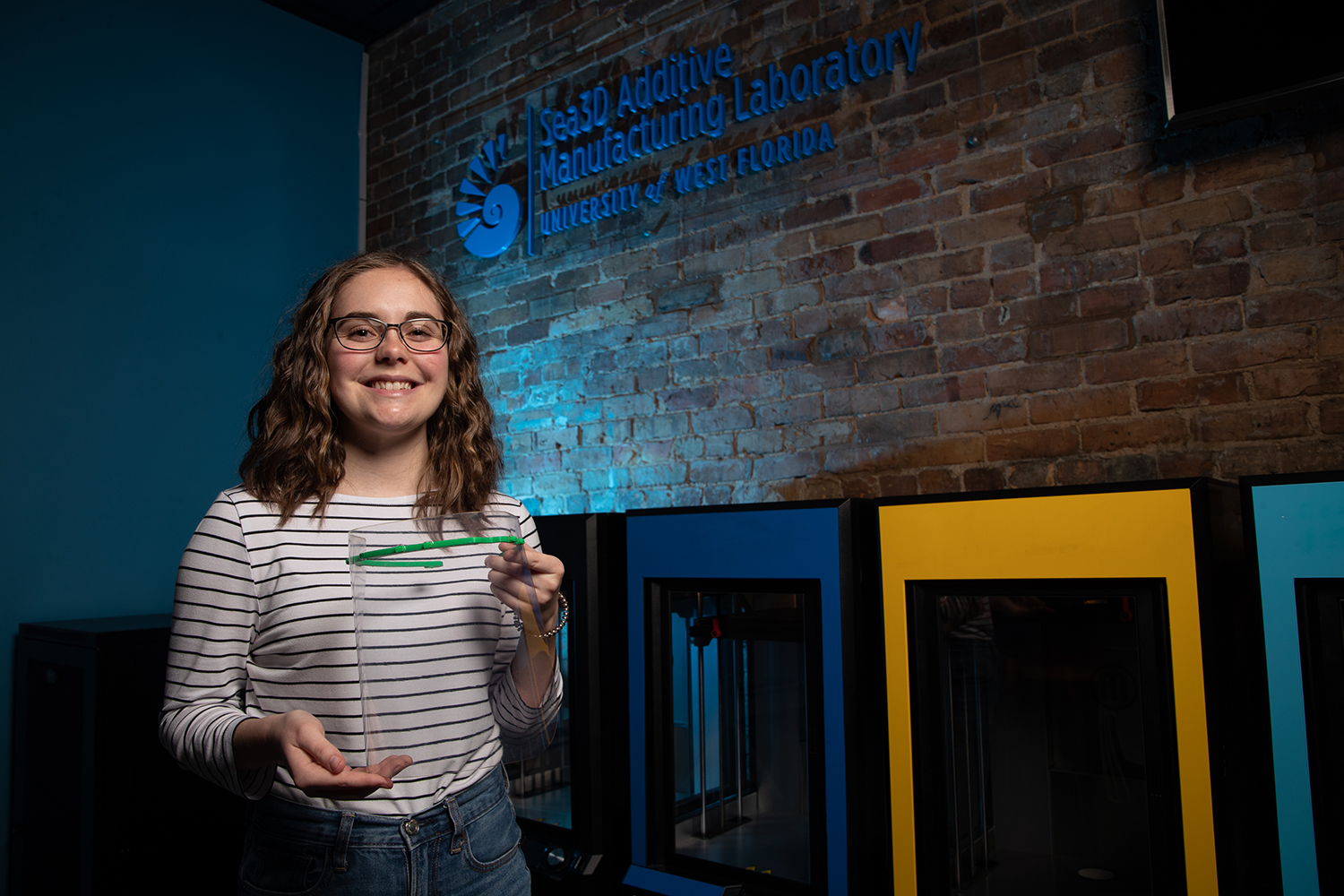UWF manufacturing, distributing 3D-printed face shields for healthcare workers
As a shortage of full face shields for healthcare workers grips the nation in the battle against COVID-19, the University of West Florida responded by asking one of the University’s direct support organizations to manufacture, manage and distribute 3D-printed full face shield supplies at its Sea3D Additive Manufacturing Laboratory in downtown Pensacola. The full face shields will be free of charge and distribution is set to begin on Tuesday, April 7, 2020.

As a shortage of full face shields for healthcare workers grips the nation in the battle against COVID-19, the University of West Florida responded by asking one of the University’s direct support organizations to manufacture, manage and distribute 3D-printed full face shield supplies at its Sea3D Additive Manufacturing Laboratory in downtown Pensacola. The full face shields will be free of charge and distribution is set to begin on Tuesday, April 7, 2020.
“By now most of us are aware of the shortage of face shields for healthcare workers,” said UWF President Martha D. Saunders. “At UWF, we are simply doing what we do best, deploying our resources for the good of our community. Fighting COVID-19 is a critical mission and we’re all in this together.”
The production team will print components for the shields on-demand for distribution after a short application process. Distribution will occur at the Sea3D lab, located inside the UWF Historic Trust’s Museum of Commerce in downtown Pensacola. The goal is to make 60 per day, six days a week, for four weeks, resulting in approximately 1,440 shields per month. While the University is donating these face guard kits, each unit costs $6.50 in materials and roughly $4 in labor. UWF Business Enterprises, Inc., a direct support organization of the University, is sponsoring the initiative and managing the manufacturing and distribution.
Healthcare providers may request the shield kits by completing an online form and satisfying the conditions of acceptance. Priority may be given to local nonprofit healthcare providers serving at risk populations including the elderly, low income and the homeless. After completing a web request and signing a waiver, representatives from healthcare agencies may pick the face guard kits up at 4 p.m. each weekday at the Museum of Commerce.
“This is an opportunity for UWF students and faculty to collaborate with manufacturers and utilize their skills in this time of need,” said Nicole Gislason, interim assistant vice president of the UWF Haas Center. “We teach our students that real-world problems can be transformed into creative solutions through research, invention and discovery. There is no better time than the present for them to put that teaching to practical use.”
The production team consists of innovators from multiple departments at UWF, including nursing, engineering, art and business. UWF students and faculty will work alongside professionals from regional hospitals, the Escambia County Division of Emergency Management, Jupiter Bach, GE Renewable Energy and Alto Products Corp.
“There are thousands of inventors and makers around the globe generously sharing their ideas to address the pandemic,” said Thomas Asmuth, associate professor of the UWF Department of Art and a designer for the production team. “We are very grateful for the quick start from other designers around the world. You can be very agile in response to a problem when you are using rapid prototyping technologies. As a designer and maker, there is nothing comparable.”
For more information on COVID-19, visit uwf.edu/coronavirus.
For more information about UWF Sea3D, visit www.uwf.edu/sea3d.


